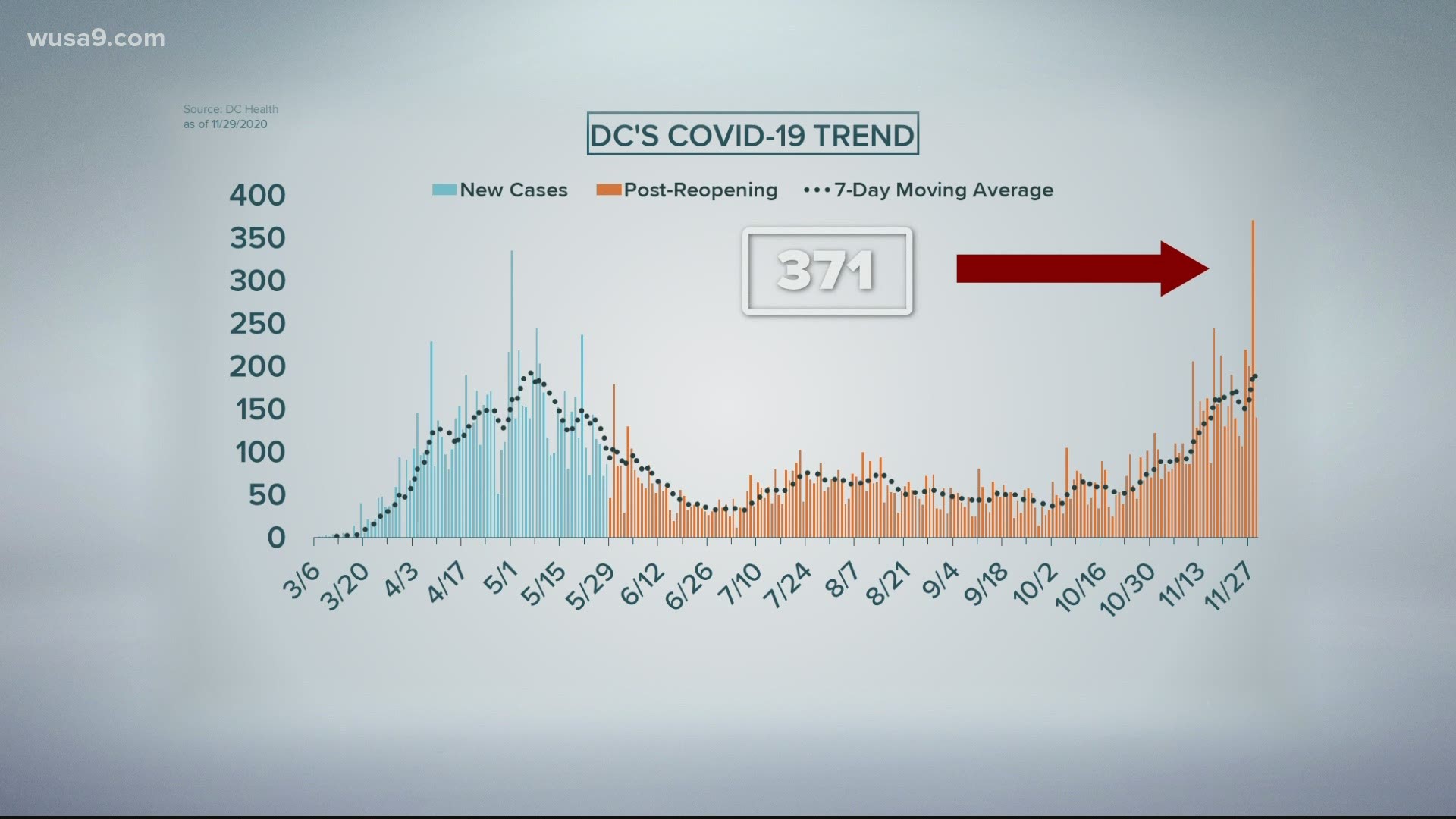WASHINGTON — As coronavirus cases continue to climb across the country, an astrophysicist who has been analyzing COVID data throughout the pandemic warns it will only get worse the rest of the year.
“You’ve got a nice bonfire sitting there burning, and we’re throwing gasoline on it," astrophysicist Dr. Jeff Hester said.
He said coronavirus data shows a continuing surge that's already surpassed the initial peak of the pandemic.
“There is nothing in what is going on right now that should make anyone sanguine about COVID-19 or should make anyone feel like they don’t have to worry about it anymore," Dr. Hester said.
He said DC, Maryland, and Virginia have been faring better than much of the rest of the country — which he thinks could be in part the delay to reopen schools.
However, he predicts that holiday travel will cause this area to catch up to the rest of the country in the next few weeks.
DC reported a record high single day positive COVID case count Saturday, showing 371 positive tests — the highest since the spring.
Virginia hit its daily case count record the Monday before Thanksgiving, reporting 3,242 positive cases. Dr. Hester said the Commonwealth is also showing an exponential doubling time of 11 days, which he said is a concerning uptick.
And, Maryland hit multiple single-day spikes throughout the month of November.
“Right now what we are facing more than anything is a problem in political will and just kind of denial," Dr. Hester said. "People refusing to actually look at the numbers, to actually look at the science, to think that through and understand the risks that are being taken and what the impacts are.”
Dr. Hester shared a tool that Georgia Tech developed to evaluate the risk of contracting COVID at an event.
The website says it analyzes county, state, and national coronavirus data to predict how likely it is that one person at a gathering has COVID-19 based on the size of the group and the county in which the event is being held. The results have an ascertainment bias of 5 or 10, which reflects a potential skewing of data based on factors researchers didn't account for.
For example, in Prince George's County, the tool says that right now, if a person hangs out with 15 people, there's a 25% chance one of them has COVID, with an ascertainment bias of 5. With a bias of 10, there's a 43% chance.
Dr. Hester said the impact of Thanksgiving travel and gatherings will start to be reflected in the data in two to three weeks.
“What that means is coming into the next big holiday season, we are in all likelihood going to be in a situation worse than we’re in right now," he said.
Dr. Hester said there is some hope in the progress of the vaccines. However, there are multiple variables that will affect their success, like how many doses, storage availability, and willingness to get it.
To try to prevent December from garnering more record high case numbers, government officials and medical professionals alike recommend staying home and when you cannot, wearing a mask.

